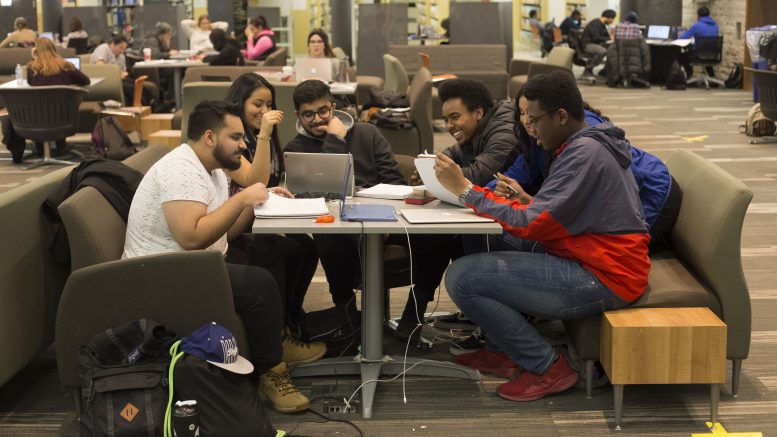The Arts Student Body Council (ASBC) Wellness Committee released a resource guide on Dec. 4, which pertains to mental health services available to students on- and off-campus.
The ad-hoc committee of the ASBC, created earlier this semester, focuses “on the promotion of mental health and accessibility for arts students, as well as students at large,” said Carly McFall, a volunteer for the committee.
The committee conducted a mental health survey which examined factors affecting access to mental health services, compiled the resource guide, and plans to launch Break the Stigma campaign next year to realize it’s mandate.
McFall said that the committee conducted the survey “to get a feel of how students at the U of M are doing in regard to [reaching] accessibility services, mental health services on campus.”
One of the questions asked students if they feel comfortable seeking out assistance on campus. Of the 366 responses, 54 per cent of the participants responded saying that they feel comfortable, 23 per cent said they did not, and the remaining 23 per cent said they were unsure.
“I think it’s great that 54 per cent [of the survey respondents] are aware of the services,” she said.
“We definitely want to increase that number [of students aware of the services], because 23 I think is still a very significant number,” said McFall, referring to the students who did not feel comfortable seeking assistance for mental health services.
At least half of the survey participants said they have some sort of connection with disability. On a scale of one to five – one being very good, five being very bad – survey participants were asked to rate how the U of M is currently doing with regard to mental health services on campus and 42.3 per cent of the participants ascribed the efforts to a rating of three.
Speaking on behalf of the committee, McFall said the university administration should do more in “getting students to become aware of the services that they provide as well as [spreading] awareness for organizations off-campus as well.”
McFall said the committee will focus on reaching as many students as it can to improve these statistics.
“So each member on our team was able to select an organization, either on-campus or off-campus, which focuses on mental health and accessibility,” and mentioned that the organizations selected will be included in the resource guide.
“We want to do a print edition and an online edition as well,” she said. “It will take a bit of time going up but it is an important goal this year and next semester our focus will be on ‘Break the Stigma’ campaign.”
McFall also added that through the campaign, the committee aims to partner with other organizations on campus to reach out to students at large but will focus on arts students.
UMSU’s take
Allison Kilgour, UMSU VP advocacy, echoed McFall’s sentiments and said there are resources available to students on campus.
“But there is always more that can be done,” she said. “One of the biggest problems is the lack of awareness about supports and services that are currently in existence.”
“UMSU has been partnering with different U of M offices through our campaigns and initiatives to better promote these services to students, and will continue to advocate for additional resources that our students need,” she added.
Kilgour said that Long Night Against Procrastination, a way of supporting students academically, was re-branded this year to Student Nights Against Procrastination (SNAP).
SNAP expanded the event over four nights, from Nov. 27 to Nov. 30 and at several locations on campus to support students by providing them with space to study for end of semester examinations and cope with assignment deadlines.
Kilgour said this year “included more programming and assistance for students through educational workshops, tutoring sessions, an earlier start time, and stress-relief activities throughout.”
“We are still advocating for increased access to libraries, but this requires additional staff and security to ensure student success, and most importantly student safety,” she said.
Kilgour said UMSU introduced “Empower Me,” a support line within the health and dental plan which provides students with 24-hour access to professionals and psychologists in various languages as it is important for UMSU to promote student health and well-being on campus.


